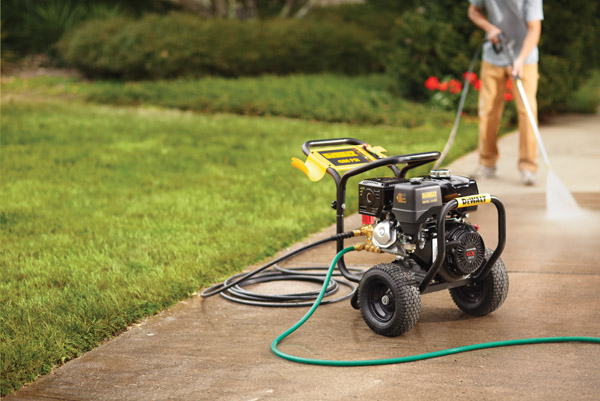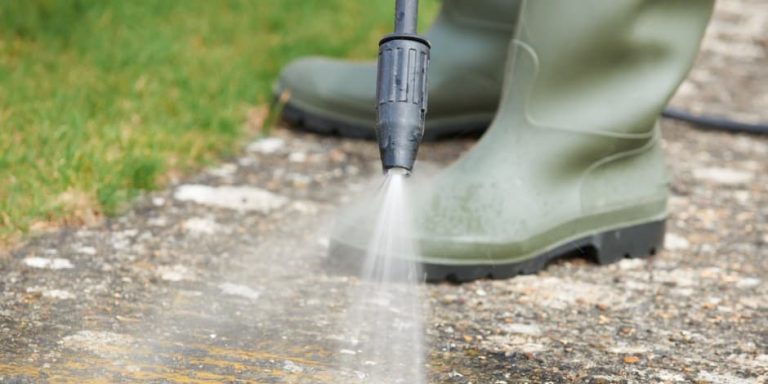
Power washing is a go-to method for cleaning sidewalks, driveways, patios, and building exteriors in urban environments. But what many property owners and contractors don’t realize is how easily this process can harm urban trees, shrubs, grass, and garden beds.
Urban green spaces are already under stress from pollution, foot traffic, and limited soil health—high-pressure water and runoff can be the tipping point. In this article, we’ll look at how power washing affects urban landscaping and what you can do to avoid long-term environmental damage. 🌿
🏙️ The Role of Landscaping in Cities
Urban trees and green zones are critical to:
- Reducing heat island effects
- Improving air quality
- Absorbing rainwater and reducing runoff
- Supporting pollinators and birds
- Beautifying neighborhoods
Yet, these areas often exist in tight proximity to buildings, walkways, and commercial zones—where power washing is common.
💧 How Power Washing Harms Urban Landscaping
Even when not aimed directly at plants, power washing can cause damage through:
- High-pressure spray, which strips bark or damages leaves
- Detergent runoff, which soaks into root zones
- Physical soil erosion, especially on sloped or newly planted areas
- Water compaction, reducing oxygen availability in the soil
These issues are more pronounced in densely built environments, where green space is scarce and often fragile.
🌳 Specific Risks to Urban Trees and Plants
1. Bark Damage
Directing a pressure washer at a tree trunk—even briefly—can strip off bark, damage the cambium layer, and make the tree vulnerable to pests or disease.
2. Leaf and Bud Injury
Even light mist or overspray can break delicate new growth, burn leaves (if detergent is present), or inhibit photosynthesis.
3. Root Zone Contamination
Chemical cleaners in runoff may:
- Kill beneficial microbes
- Alter soil pH
- Leach into deeper soil layers
- Damage shallow-rooted plants like grass or flowers
🧴 The Problem with Detergents
Most off-the-shelf pressure washing detergents contain:
- Surfactants (to lift dirt)
- Solvents
- Artificial fragrances
- Sometimes bleach or phosphates
These can poison soil and persist for days. Even biodegradable soaps can damage sensitive plants, especially when applied repeatedly or in concentrated areas.
✅ How to Power Wash Without Harming Landscaping
1. Pre-Wet Green Areas
Lightly water nearby lawns, flower beds, and tree bases before starting. This dilutes any runoff that lands there and minimizes chemical absorption.
2. Use Physical Barriers
Set up:
- Tarp covers over shrubs or flower beds
- Temporary splash guards made from cardboard or plastic sheets
- Burlap wraps around small trees or bushes
3. Select Eco-Safe Cleaners
Choose detergents labeled:
- “Non-toxic to plants”
- “Phosphate-free”
- “Biodegradable in 7 days or less”
Avoid bleach, ammonia, and anything with synthetic fragrance.
Browse Amazon For Eco-Friendly Power Washing Soaps
4. Watch the Spray Angle
Use a fan-tip nozzle and keep the stream angled away from plants. Even indirect blasts can break stems or cause leaf tear.
🌱 Landscaping Types Most at Risk
- Newly planted trees (less than 2 years old)
- Raised flower beds near walls or patios
- Sloped gardens below walkways
- Planters next to storefronts or fences
- Small tree lawns (the space between curb and sidewalk)
These areas often absorb runoff unintentionally, especially when washing concrete or brick close by.
🛠️ What to Do If Damage Happens
- Rinse affected areas immediately with clean water
- Trim broken branches or leaves to prevent rot
- Test soil for chemical imbalances and pH shifts
- Apply compost or mulch to help recovery
- Replant if necessary during the next growing season
The key is to respond quickly—plants can recover if addressed early. 🌸
🏢 Citywide Impacts and Policy Trends
More municipalities are beginning to address power washing runoff in their landscaping codes. Common regulations include:
- Bans on phosphate detergents
- Restrictions near public tree zones
- Mandatory water recovery systems in commercial projects
- Public education campaigns for eco-conscious maintenance
Staying informed helps you avoid fines—and shows respect for shared green spaces. 📜
🌍 Final Thoughts
Urban trees and gardens are essential for healthy, livable cities. As useful as power washing is, it can easily undermine decades of landscaping work if done without care. By taking simple precautions and using plant-safe practices, you can keep your concrete clean and your greenery thriving.
Because in a concrete jungle, the trees need protection too. 🌳🧼✅
Browse Amazon Here For Top Rated Power Washers And Accessories






